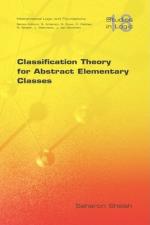|
This section contains 220 words (approx. 1 page at 300 words per page) |
An abstract class is a component of object-oriented programming. The C++ and Java programming languages are two examples of object-oriented programming. An abstract class is a so-called superclass, or parent, which functions as a placeholder for items of a common function, and provides a common interface for inherited classes.
An abstract class is useful when the contained information is the same as that in an existing class. Both classes, however, do not contain the full amount of information necessary for execution of the information. Some behaviors can be defined, with other aspects defined by related sub-classes. For example, an abstract class can provide default aids such as message handling, which can be an added component of an application. Other functions, such as start-up and shutdown, cannot be add-ons. An abstract class, however, can support these functions by supplying the start-up and shutdown methods. In other words, the abstract class could initiate the action, but not provide all the necessary information for the performance of the task.
Functionally, an abstract class is often used to locate incomplete sets of features so that other sub-classes can share the information or add to it, creating a more complete net effect.
Another example of an abstract class is the Boolean class. This abstract class has two subclasses, true and false.
|
This section contains 220 words (approx. 1 page at 300 words per page) |


